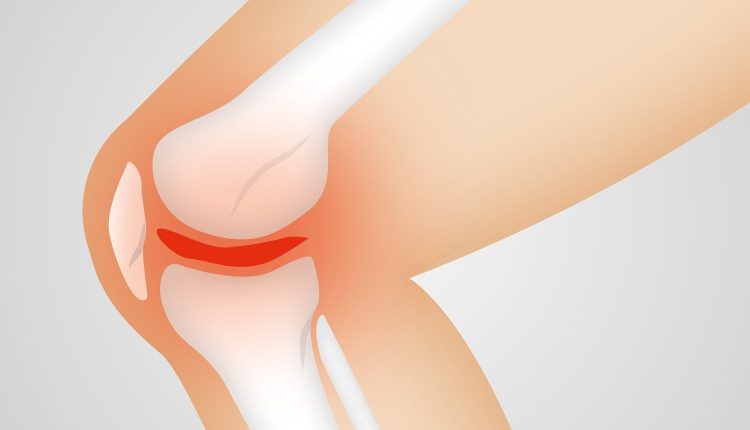London TKR For Active People: Knee Replacement Surgery With No Referral
The world sure would be a funny place if we were all the same – but for some reason, we still have a lot of one-size-fits-all solutions, even knowing they don’t fit anyone as well as they could.
Here’s what I think – we can do better, especially when it comes to our health. If you’re here to learn about the latest, greatest, and most natural total knee replacement options available today, that’s great. Stick around for all the details, or visit https://mskdoctors.com to book your own appointment with a specialist, with no GP referral or waitlist.
Why? Because everyone deserves prompt access to reliable information from top experts, and it’s easy to book the surgery too. I’ll talk more about that later though.
What You Need To Know, Briefly
MSK Doctors in London have partnered with MAI Motion to provide folks like you and me with highly customised knee prosthetics, using an advanced technique that is not available at most clinics.
If you haven’t heard of it yet, it’s known as Turn With Intelligent Stability – Total Knee Replacement, or TWIS-TKR, and aside from the long name, it’s got an even longer list of benefits.
While total knee replacement surgery is well-established, this new technique uses advanced AI analysis tools to enhance the surgical planning, and to provide you with a custom rotational alignment that was not possible with traditional techniques.
What Do Real People, Real Patients, Think?
Before we get too far into the details, I want to talk about what I think is the most important metric – what do people who have had this surgery, think about it?
There’s a technical term for this kind of question, what we’re looking for is called “Patient Reported Outcomes,” and sometimes it’s shortened to PROMs. Don’t worry though, I looked up the PROMs for this technique already, so you don’t have to.
The quick version is simple: People love their new TWIS-TKR knee. While it may not be quite identical to the one they were born with, we keep hearing about the same big three benefits. It’s more stable, it feels and moves more naturally, and there’s less pain and discomfort after the surgery.
Plan Now, Get The Surgery Soon
If TWIS-TKR is something you’re interested in, let me offer a quick tip – start planning now.
While you can get in to see a specialist at MSK Doctors right away, this technique may take a few extra visits to the clinic, to make sure they’ve got it absolutely right. It shouldn’t be too long, but if you’re waiting for a new knee, every day may feel like an eternity.
That’s why they don’t require referrals, and don’t believe in waiting lists, because no one should have to wait for healthcare.
How AI Can Help & What To Expect
Let me lay any fears to rest right away here, no AI or robots will be involved in completing your surgery. The AI tools are mostly for analysis of how you move, and to help with the surgical planning process.
The actual work will be done by a team of trained and experienced human specialists, at least for now. If we get robot surgeons for this in the future, I’ll be sure to update the article.
That isn’t to say that the AI doesn’t help though – because it informs the surgical team exactly how to optimise your new knee, for maximum effect. We need to rewind just a little so I can explain though.
When you first show up for your analysis, you’ll be asked to move as naturally as possible, while an innovative set of AI tools analyse your movements and kinematics. They may ask you to walk, bend, sit, stand, climb stairs, or do high kicks – it will really depend on your anatomy, and movement style.
Then the AI tools will put all that information together, and help to determine the optimal angle for your new knee, based entirely on how you, personally, move.
Proven Benefits, Briefly
In clinical trials, the TWIS-TKR technique showed three main benefits, aside from Patient Reported Outcomes. Individuals with an AI-optimised prosthetic alignment showed improvements in joint mobility and stability, as well as recovery.
That sounds to me like all of the things we should care about – how fast we’re back on our feet, how mobile we are, and how stable our new knees are… plus, of course, how much pain there is during recovery, but that was covered in PROMs.
A specialist from MSK Doctors can explain it better than I can though, they said, “Clinical studies focusing on TWIS-TKR have reported significantly better functional outcomes. This includes improved range of motion, enhanced joint stability, and a more natural knee movement, closely mimicking the kinematics of a healthy knee.”
When compared to traditional techniques, TWIS-TKR can also reduce the risk of potential complications and secondary surgeries. So your first surgery is more likely to be your last – and that’s great.
Specialists believe this could be due, in part, to a decrease in wear and tear on the prosthetics, because of the improved stability and more equal stress loading of the knee joint.
Or to put it another way, when your new knee fits just like your old one – it’s more likely to work just as well too.
If you need a new knee, just ask about TWIS-TKR first. Specialists are available any time, with no wait or referral, just book online at https://mskdoctors.com/msk/treatments?q=knee



Comments are closed.